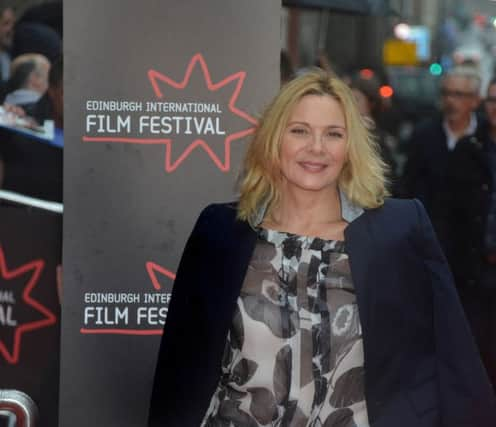Brian Ferguson: Cities need to nurture grassroots cultural scenes


The venue has long home to the opening party of the Edinburgh International Film Festival. But another landmark was reached in the Victorian building as the capital kicked off its 70th season of festivals with the EIFF’s opening.
And while the Edinburgh International Festival and Fringe – which are also being staged for the 70th time this August – are holding off on official celebrations till their proper birthdays in 2017, the EIF has been busy plotting its own spectacular curtain-raiser.
Advertisement
Hide AdAdvertisement
Hide AdExpectations about what director Fergus Linehan would do to start this year’s event have been soaring since last year’s Harmonium Project, which saw nearly 20,000 people gather outside the Usher Hall to see it transformed by a dramatic sound and light show.
Linehan and 59 Productions, the animation and projection company behind last year’s event, will be revealing a lot more about the follow-up, Deep Time, today. But with Edinburgh Castle now providing the much bigger backdrop to the event – which has become all-ticket due to the size of the crowd which turned out last year – it is already shaping up to be a highlight of the summer.
The festival’s drive to embrace other forms of music under Linehan’s tenure will be symbolised by the setting of Deep Time to a soundtrack of music by Mogwai, one of Glasgow’s most successful indie-rock bands. Their music and influence was at the heart of one of the first films I caught at this month’s EIFF, Lost in France. It is a sign of the festival’s recent revival that it secured the world premiere of a documentary charting the evolution of the scene Mogwai emerged from two decades ago in Glasgow.
There was something slightly odd about watching the story of Chemikal Underground – the Glasgow record label at the heart of the city’s thriving mid-1990s melting pot and the era-defining bands it helped develop – inside an Edinburgh cinema. But while Irish director Niall McCann’s fascinating film focused almost exclusively on Glasgow bands – with the notable exception of Falkirk outfit Arab Strap – it struck me as having a much wider relevance.
While the hook for making Lost in France was a reunion of some of the Glasgow musicians who had travelled to France for a series of shows in 1997, the story that unfolded was about the grassroots scene that allowed bands like Mogwai and The Delgados to flourish, alongside the label that turned them into international success stories, and its struggles to survive in the modern music world.
It felt deeply ironic to watch the film in a city that has been regularly criticised for failing to encourage grassroots culture to flourish, despite the success of its festivals. But it should also raise important questions in Glasgow, where the success of the new Hydro arena since it opened in 2013 has played a key role in Scotland attracting 900,000 “music tourists” a year.
A key strand of McCann’s film was how much more difficult it is for labels like Chemikal Underground to even exist, the dwindling opportunities for bands to tour and how important unemployment benefit was to the musicians who gradually found their feet 20 years ago. Is it, as the film suggests, now more difficult for musicians to form bands, reach an audience and make a living in what is now a Unesco City of Music?